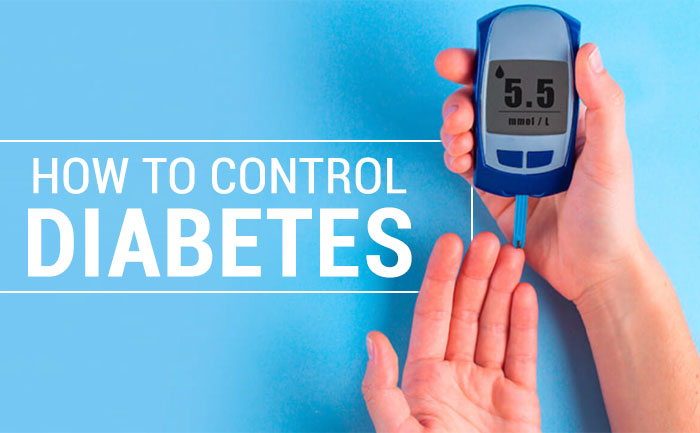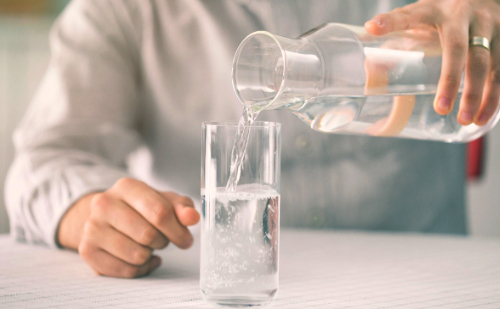- Sponsored -
How to control Diabetes: Everything you need to know
Diabetes is a disease that occurs when your blood glucose, also called blood sugar, is too high.

What is Diabetes?
- Sponsored -
Diabetes is a group of metabolic disorders characterized by a high blood sugar level over a prolonged period of time. The hormone insulin moves sugar from the blood into your cells to be stored or used for energy. Diabetes is due to either the pancreas not producing enough insulin or the cells of the body not responding properly to the insulin produced. Too much sugar in your blood can lead to serious health problems.
If left untreated, diabetes can cause many health complications. Acute complications can include diabetic ketoacidosis, hyperosmolar hyperglycemic state, or death. Serious long-term complications include cardiovascular disease, stroke, chronic kidney disease, foot ulcers, damage to the nerves, damage to the eyes, and cognitive impairment.
The major long-term complications relate to damage to blood vessels. Diabetes doubles the risk of cardiovascular disease and about 75% of deaths in people with diabetes are due to coronary artery disease. Other macrovascular diseases include stroke and peripheral artery disease.
There are three main types of diabetes mellitus:
- Type 1 diabetes
It is believed to be an autoimmune condition and it results from failure of the pancreas to produce enough insulin due to loss of beta cells. This means your immune system mistakenly attacks and destroys the beta cells in your pancreas that produce insulin. Type 1 diabetes is partly inherited, with multiple genes, including certain HLA genotypes, known to influence the risk of diabetes.
- Type 2 diabetes
It begins with insulin resistance, a condition in which cells fail to respond to insulin properly. This means your body can’t use insulin efficiently. The most common cause is a combination of excessive body weight and insufficient exercise. Type 2 diabetes is primarily due to lifestyle factors and genetics. It is the most common type of diabetes mellitus.
- Gestational diabetes
It is due to insulin-blocking hormones produced during pregnancy. It occurs in about 2–10% of all pregnancies and may improve or disappear after delivery. It is recommended that all pregnant women get tested starting around 24–28 weeks gestation. Gestational diabetes is fully treatable but requires careful medical supervision throughout the pregnancy.
Early Signs and Symptoms of Diabetes:
General symptoms of diabetes include:
- Increased hunger
- Increased thirst
- Weight loss
- Numb or tingling hands or feet.
- Frequent urination
- Blurry vision
- Extreme fatigue
- Sores that don’t heal
- Dry skin
Type 1 Diabetes:
- Unplanned weight loss.
- Nausea and vomiting.
- Extreme hunger.
- Irritability and other mood changes.
- Increased thirst.
Type 2 Diabetes:
These tend to show up after your glucose has been high for a long time. Some people don’t notice any symptoms at all.
- Slow-healing sores or cuts
- Yeast infections.Pain or numbness in your feet or legs.
Gestational diabetes:
Most women with gestational diabetes don’t have any symptoms. In rare cases, a woman with gestational diabetes will also experience increased thirst or urination.
Ways to Control Diabetes:
- Stay hydrated:
Dehydration and diabetes often go hand in hand. High blood sugar can reduce fluid levels in your body, which can lead to dehydration. Diabetes occurs when the body doesn’t produce enough insulin, creating extra sugar in your blood, and your kidneys work overtime to filter and absorb the excess sugar.
Excessive thirst is an initial symptom of diabetes, as well as a symptom of mild dehydration. Diabetes thirst increases when your body loses too much water from urination caused by high blood sugar. Stay hydrated by drinking plenty of water or caffeine-free beverages such as seltzer water or sugar-free lemonade.
- Manage stress levels:
Learning how to manage your stress takes practice, but you can and need to do it. Even high stress from serious illness, job loss, a death in the family, or a painful life event can be a natural part of life. Stress can make it more difficult to control your diabetes as it may throw off your daily routine and can result in wear and tear on your body.
Stress is an unavoidable part of life, but that doesn’t mean you should ignore it. Hormones from stress increase your blood pressure, raise your heart rate, and can cause blood sugar to rise. High blood sugar can make you feel down or tired.
- Consume probiotics:
Diabetes is an auto-immune disease that compromises the body’s production of insulin. Probiotics are safe for the majority of the population, but side effects can occur. The most common side effects are a temporary increase in gas, bloating, constipation and thirst. Probiotics are made up of good bacteria that help keep your body healthy and working well. This good bacteria helps you in many ways, including fighting off bad bacteria when you have too much of it, helping you feel better.
10 Probiotic Foods That Are Super Healthy:
- Yogurt.
- Buttermilk.
- Kimchi.
- Tempeh.
- Sourdough bread.
- Cottage cheese.
- Kombucha.
- Fermented sauerkraut.
- Pickles.
- Miso soup.
- Substitute sugar with natural sweeteners:
Low-calorie sweeteners are sugar substitutes that have zero calories and do not raise blood glucose levels through eating them, which makes them a preferable choice for diabetic people over sugar. Not all natural sweeteners are safe alternatives for people with diabetes. Sugar sweetens, preserves, and enhances the flavor of food. A sugar substitute is a food additive that provides a sweet taste like that of sugar while containing significantly less food energy than sugar-based sweeteners, making it a zero-calorie or low-calorie sweetener.
Substitutes for Sugar:
- Stevia
- Honey
- Date Sugar
- Coconut Sugar
- Sugar-Free
Disclaimer: Always consult a specialist or your own doctor for more information. This content including advice provides generic information only.
ALSO READ: Tokyo Olympics 2021: How To Watch Opening Ceremony, Schedule And Events
- Sponsored -




